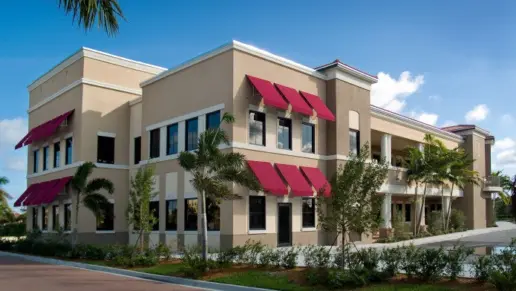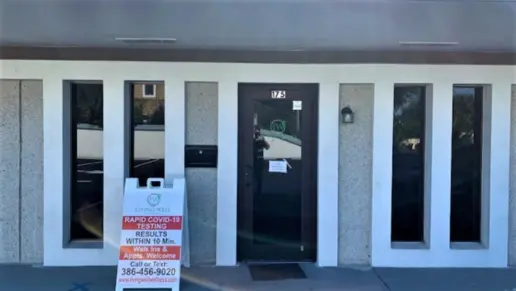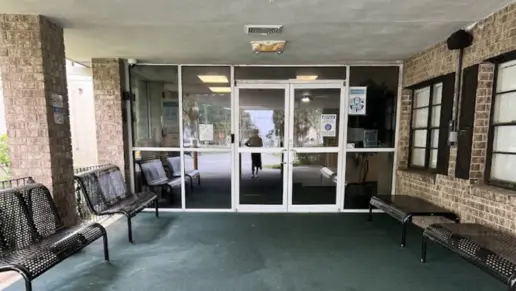About Hibiscus Childrens Center – Vero Beach
The Hibiscus Children's Village is a treatment facility located in Vero Beach, Florida. This facility offers a safe environment for adolescents who have experienced or been abused by the state and in need of a safe environment. They provide services such as medical, mental health, and educational programs to children between the ages of twelve to seventeen.
The Hibiscus Children’s Village is a treatment facility located in Vero Beach, Florida. This facility offers a safe environment for adolescents who have experienced or been abused by the state and in need of a safe environment. They provide services such as medical, mental health, and educational programs to children between the ages of twelve to seventeen.
The Hibiscus Children’s Village is a treatment facility located in Vero Beach, Florida. This facility offers a safe environment for adolescents who have experienced or been abused by the state and in need of a safe environment. They provide services such as medical, mental health, and educational programs to children between the ages of twelve to seventeen.
The facility has forty beds at this location for children, a safe place to heal and receive support and guidance. The staff at the facility assist with incorporating a routine and develop skills to help your child gain more self confidence and independence. Chores, accountability, and supervision as well as taking them for outings are some of the responsibilities the staff here help out with.
During your child’s stay at this facility medical services as well as mental health programs are available. They will receive a medical assessment upon arrival at this facility that will be completed by a nurse. Trauma informed care will be included in their treatment plan as well as working with licensed therapists.
They offer a culinary and graphic design impact center to provide more job opportunities and also receive certificates. There are also GED services available and community based internships by local businesses and agencies to help them develop their career.
Latest Reviews
Rehab Score
Other Forms of Payment
Medicaid is a state based program that helps lower-income individuals and families pay for healthcare. Medicaid covers addiction treatment so those enrolled can use their coverage to pay for rehab. When a program accepts Medicaid the client often pays very little or nothing out of their own pocket.
Financial aid can take many forms. Centers may have grants or scholarships available to clients who meet eligibility requirements. Programs that receive SAMHSA grants may have financial aid available for those who need treatment as well. Grants and scholarships can help you pai for treatment without having to repay.
Addiction Treatments
Levels of Care
Treatments
Mental health rehabs focus on helping individuals recover from mental illnesses like bipolar disorder, clinical depression, anxiety disorders, schizophrenia, and more. Mental health professionals at these facilities are trained to understand and treat mental health issues, both in individual and group settings.
Programs

Clinical Services
Cognitive Behavioral Therapy (CBT) is a therapy modality that focuses on the relationship between one's thoughts, feelings, and behaviors. It is used to establish and allow for healthy responses to thoughts and feelings (instead of unhealthy responses, like using drugs or alcohol). CBT has been proven effective for recovering addicts of all kinds, and is used to strengthen a patient's own self-awareness and ability to self-regulate. CBT allows individuals to monitor their own emotional state, become more adept at communicating with others, and manage stress without needing to engage in substance abuse.
Whether a marriage or other committed relationship, an intimate partnership is one of the most important aspects of a person's life. Drug and alcohol addiction affects both members of a couple in deep and meaningful ways, as does rehab and recovery. Couples therapy and other couples-focused treatment programs are significant parts of exploring triggers of addiction, as well as learning how to build healthy patterns to support ongoing sobriety.
Experiential therapy is a form of therapy in which clients are encouraged to surface and work through subconscious issues by engaging in real-time experiences. Experiential therapy departs from traditional talk therapy by involving the body, and having clients engage in activities, movements, and physical and emotional expression. This can involve role-play or using props (which can include other people). Experiential therapy can help people process trauma, memories, and emotion quickly, deeply, and in a lasting fashion, leading to substantial and impactful healing.
Research clearly demonstrates that recovery is far more successful and sustainable when loved ones like family members participate in rehab and substance abuse treatment. Genetic factors may be at play when it comes to drug and alcohol addiction, as well as mental health issues. Family dynamics often play a critical role in addiction triggers, and if properly educated, family members can be a strong source of support when it comes to rehabilitation.
Group therapy is any therapeutic work that happens in a group (not one-on-one). There are a number of different group therapy modalities, including support groups, experiential therapy, psycho-education, and more. Group therapy involves treatment as well as processing interaction between group members.
In individual therapy, a patient meets one-on-one with a trained psychologist or counselor. Therapy is a pivotal part of effective substance abuse treatment, as it often covers root causes of addiction, including challenges faced by the patient in their social, family, and work/school life.
Trauma therapy addresses traumatic incidents from a client's past that are likely affecting their present-day experience. Trauma is often one of the primary triggers and potential causes of addiction, and can stem from child sexual abuse, domestic violence, having a parent with a mental illness, losing one or both parents at a young age, teenage or adult sexual assault, or any number of other factors. The purpose of trauma therapy is to allow a patient to process trauma and move through and past it, with the help of trained and compassionate mental health professionals.
Contact Information
1145 12th street
Vero Beach, FL 32960


